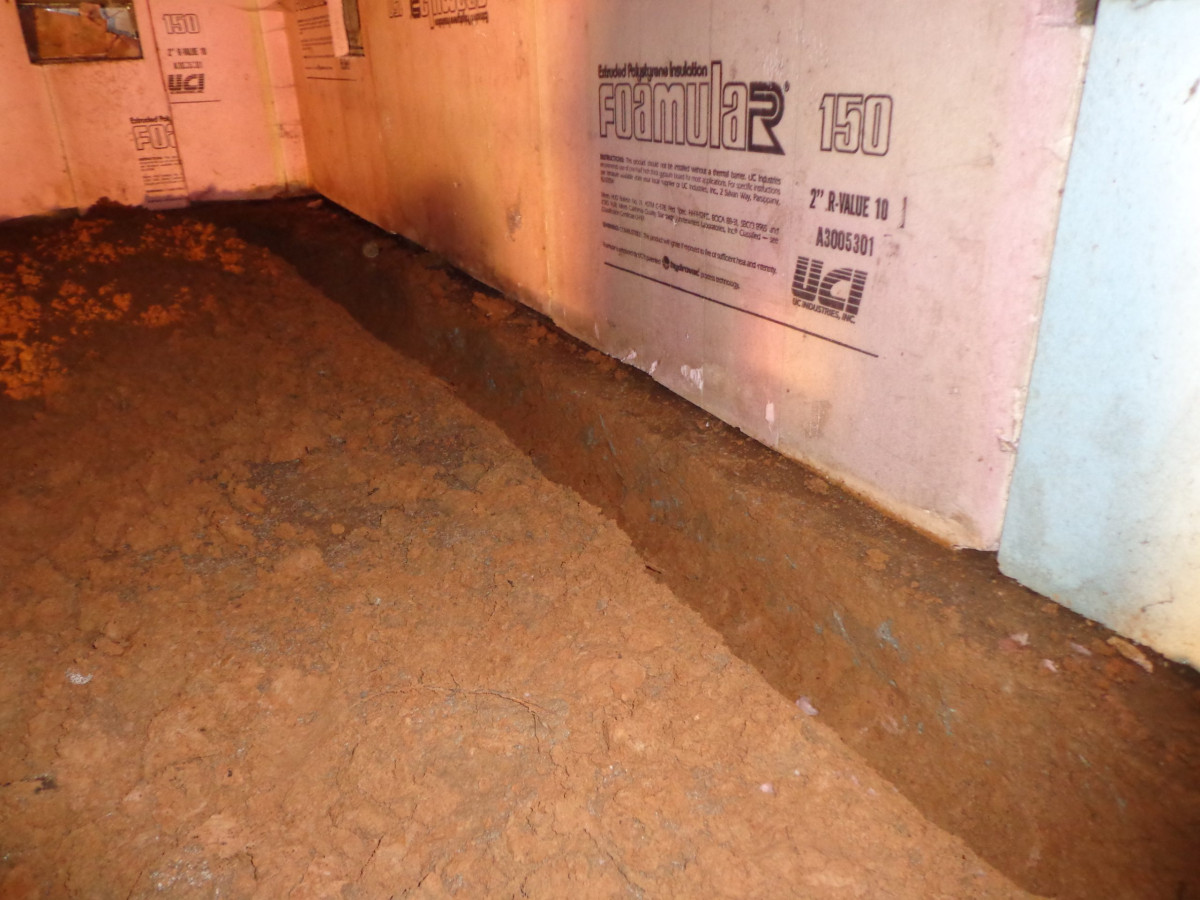Basement Flooding Explained: Main Causes and Proven Prevention Tips
Martinsville, United States - September 11, 2025 / Indiana Crawl Space Repair /
Ever had to deal with a flooded basement? It’s a nightmare, isn’t it? It’s not just the mess, but also the costly damage to your property. You might wonder, “What causes this?” There are several culprits – drainage issues, soil saturation, plumbing failures, and even foundation cracks. But don’t worry, it’s not all doom and gloom. There are ways you can protect your basement from flooding. You could maintain your gutters, improve your landscaping, seal foundation cracks, and keep an eye on your sump pump. Intriguing, isn’t it? Let’s discuss further.
Key Takeaways
- Basement flooding is often caused by drainage issues, soil saturation, plumbing failures, groundwater intrusion, and faulty sump pumps.
- Preventive strategies include regular maintenance of drainage systems and sump pumps to ensure their effectiveness.
- Installation of waterproof barriers and proper landscaping can help prevent water seepage during heavy rains.
- Regular gutter cleaning and foundation sealing can further reduce the risk of basement flooding.
- Professional solutions like interior and exterior waterproofing, drainage system installation, and structural assessments can provide long-term protection.
Understanding Basement Flooding
Your home’s basement may seem like an intimidating place when it comes to water damage. But don’t fret; understanding the basics of how water interacts with your basement can help you prevent flooding.
The water table, which is the natural underground water level, can rise during heavy rain or snow melt. When it gets higher than your basement floor, water can seep in. You can’t control the water table, but you can manage how your property handles it.
That’s where your drainage systems come in. They’re designed to keep the water table from reaching your basement. The systems direct water away from your home, reducing the risk of flooding. Some homes have external drainage systems like gutters and downspouts, while others have internal systems within the basement itself.
But remember, even the best drainage systems can fail. They’re not infallible, especially if they’re not maintained properly. Regular checks and upkeep can keep them in working order and your basement dry.
Now you know the basics. It’s not about stopping the water table; it’s about managing it with your drainage systems. Your basement doesn’t have to be an intimidating place. With understanding and maintenance, you can keep it dry and damage-free.
Common Causes of Basement Flooding
There are several common causes that can lead to basement flooding. Let’s delve into them.
Firstly, drainage issues can often result in unwanted water in your basement. If your home’s drainage system isn’t working properly, water won’t be directed away and it’s likely to end up in your basement.
Soil saturation is another cause. When the ground around your home can’t absorb any more water, the excess has to go somewhere, and that’s often your basement.
Plumbing failures, such as leaks or burst pipes, can also cause flooding. Even the smallest leak can lead to significant water damage over time.
Groundwater intrusion is another culprit. If your home’s built on high water table area, groundwater can easily seep into your basement.
Foundation cracks are a definite red flag. These cracks can allow water to enter your basement, especially during heavy rainfall.
Speaking of rainfall, it’s a common cause of basement flooding, as are snowmelt overflow and landscaping problems. If your yard’s slope directs water towards your house, you’re likely to experience basement flooding.
Understanding these causes can help you prevent basement floods. So keep your eyes peeled and take preventive measures.
The Impact of Severe Weather
While understanding the common causes of basement flooding is important, it’s equally vital to consider the impact of severe weather. When heavy rainfall hits your area, your basement’s vulnerability to flooding drastically increases. The ground can only absorb so much water; when it’s saturated, the extra water has nowhere to go but into your basement.
You’re especially at risk during flash flooding. These rapid torrents of water, often occurring with little warning, can overwhelm your home’s drainage system in an instant. Flash floods can cause water levels to rise significantly and rapidly, putting your basement in immediate danger.
It’s not just the water itself that poses a threat either. The pressure from excessive water buildup outside your basement walls and floor can lead to cracks and leaks, providing an easy pathway for water to enter.
But don’t worry, you’re not completely at the mercy of the weather. There are steps you can take to protect your basement from the impacts of severe weather, such as ensuring proper grading around your home, cleaning your gutters regularly, and installing window well covers.
Role of Faulty Sump Pumps
In the fight against basement flooding, your sump pump plays a crucial role. A well-functioning sump pump propels water out of your basement, keeping it dry and safeguarding your property. Conversely, a faulty one can spell disaster, leading to potential flooding.
Faulty sump pumps often result from poor sump pump installation or lax sump pump maintenance. A poorly installed pump may not function effectively, while neglecting maintenance could lead to pump failure.
Here’s a quick table to help you understand better:
| Issue | Result |
|---|---|
| Poor Installation | Ineffectual pump operation |
| Neglected Maintenance | Potential Pump Failure |
| Pump Age | Reduced Efficiency |
| Power Outages | Non-operational pump |
Regular checks and prompt repairs can keep your sump pump in optimal condition. Remember, it’s not enough to have a sump pump; you’ve got to ensure it’s in great shape. Don’t wait until a storm hits to find out your sump pump is faulty. Be proactive, and you’ll greatly reduce the risk of basement flooding.
Effective Strategies for Prevention
Before you find yourself knee-deep in water, let’s dive into some effective strategies for preventing basement flooding. One of the most important steps you can take is to ensure your drainage systems are working correctly. This includes both exterior and interior drainage. If water can’t escape your property, it’ll find a way into your basement.
Next, consider installing waterproof barriers. These can keep water from leaking into your basement, especially during heavy rains. They’re not foolproof, but they’re a good start.
Landscaping slopes are another great tool for preventing basement flooding. Make sure your property slopes away from your house, not towards it. This can help direct water away from your basement.
Gutter maintenance is also crucial. Clear gutters allow water to flow freely away from your home. If they’re clogged, water can overflow and end up in your basement.
Lastly, consider foundation sealing. This can prevent water from seeping into your basement through cracks in your foundation. It’s not a cure-all, but it can help.
Professional Solutions for Basement Flooding
Despite your best efforts at implementing these preventative measures, you might still find yourself dealing with a wet basement. In such cases, it’s time to call in the pros.
Industry experts employ a variety of waterproofing techniques and drainage systems to combat basement flooding effectively.
Three key professional solutions you should consider are:
- Interior Waterproofing: Professionals apply water-resistant sealants to your basement’s interior walls and floors. This technique prevents moisture from seeping into your basement.
- Exterior Waterproofing: This involves applying a waterproof barrier to the outside of your basement walls. While this method can be more expensive due to excavation needs, it offers an incredibly effective solution.
- Drainage Systems: Specialists can install a system to redirect water away from your home. This could be as simple as correcting the slope of your yard or as complex as installing a sump pump.
Frequently Asked Questions
How Does Homeowners Insurance Cover Basement Flooding?
Your homeowner’s insurance may not cover basement flooding unless you’ve specifically added flood insurance.
Coverage limits depend on your policy’s details. It’s crucial to check and understand your policy thoroughly. If you’re in a high-risk flood zone, consider increasing your coverage.
Regularly maintain your home’s drainage systems and install a sump pump to prevent potential flooding. Always be proactive; it’s better to prevent damage than to deal with it later.
What Health Risks Are Associated With Basement Flooding?
Basement flooding can pose serious health risks to you.
In stagnant water, mold growth can occur rapidly, leading to respiratory issues, allergies, and even more severe health problems.
Moreover, the floodwater may contain harmful bacteria, viruses, and other contaminants.
It’s crucial to clean up and dry out your basement thoroughly after a flood to prevent these risks.
Also, ensure to treat any mold growth professionally to safeguard your health.
Does Flooding Affect the Overall Value of My Property?
Yes, flooding can indeed impact your property’s value.
It often leads to property depreciation due to the potential for structural damage and mold growth. Moreover, it can result in resale challenges as buyers are often hesitant to invest in properties prone to flooding.
Therefore, it’s crucial to prevent flooding and maintain your property’s condition to preserve its value. Ensuring proper drainage and regular maintenance can help in mitigating such issues.
What Are Signs of Potential Basement Flooding That Homeowners Often Overlook?
You might overlook signs of potential basement flooding like water intrusion. This can appear as damp spots on walls or floors.
Unusual dampness or a musty smell can also indicate a problem.
Drainage issues, such as water pooling near your home’s foundation or overflowing gutters, often precede flooding.
Always check for these signs, especially after heavy rain. Addressing these issues early can save you from a flooded basement.
Can Basement Flooding Lead to Structural Damage to the House?
Yes, basement flooding can indeed lead to structural damage to your house. It affects your foundation integrity, causing it to weaken over time.
Moisture issues can also promote mold growth, which can further deteriorate your home’s structure.
It’s crucial to address any signs of flooding promptly. Regular inspection, proper drainage, and a good sump pump can help you prevent these issues and protect your home.
So, you’ve learned that basement flooding can be caused by several factors, including drainage issues, saturated soil, plumbing failures and foundation cracks. But don’t fret, there are effective strategies you can employ to prevent this. Regular maintenance, effective landscaping, and sealing cracks are key to keeping your basement dry. And remember, if it gets too overwhelming, professional help is always available to tackle your basement flooding issues.

Contact Information:
Indiana Crawl Space Repair
1759 N Blue Bluff Rd
Martinsville, IN 46151
United States
Larry Ralph
(317) 893-7016
https://www.indianacrawlspacerepair.com/

